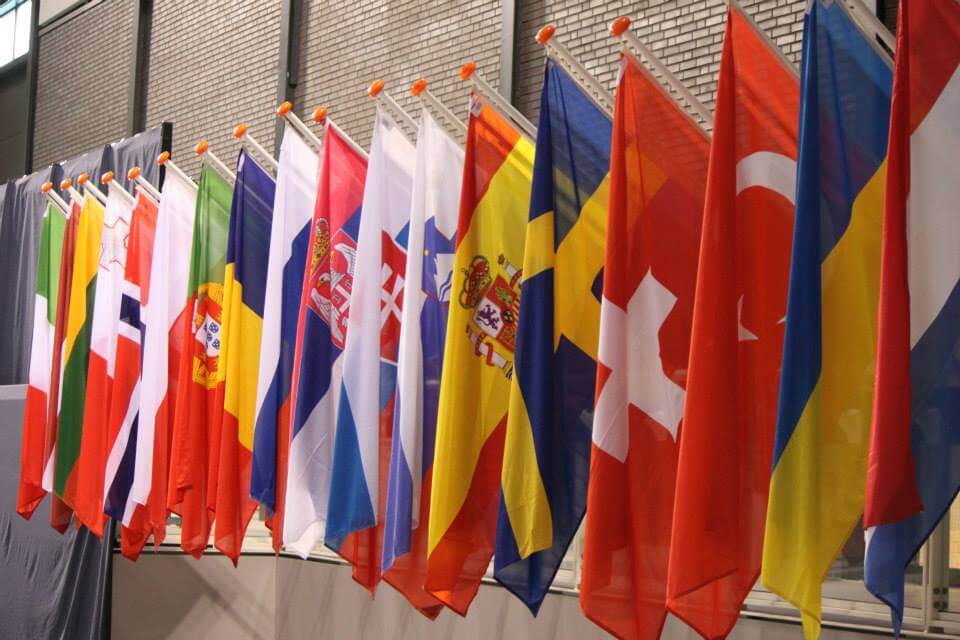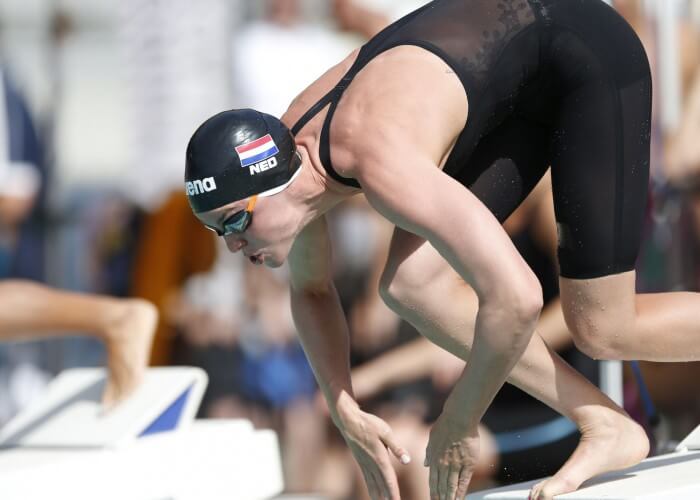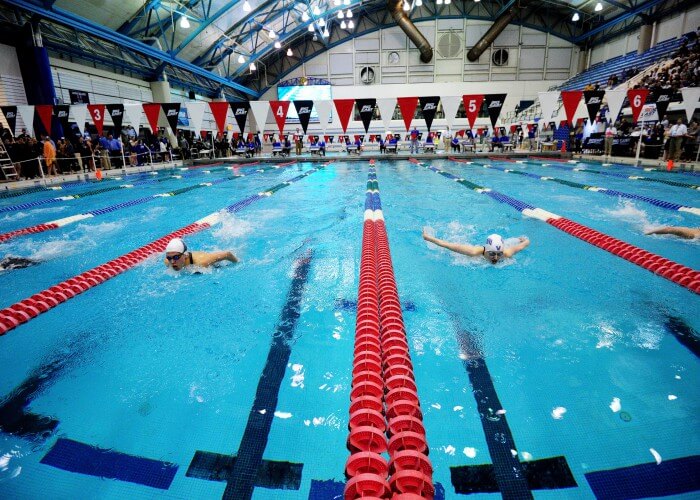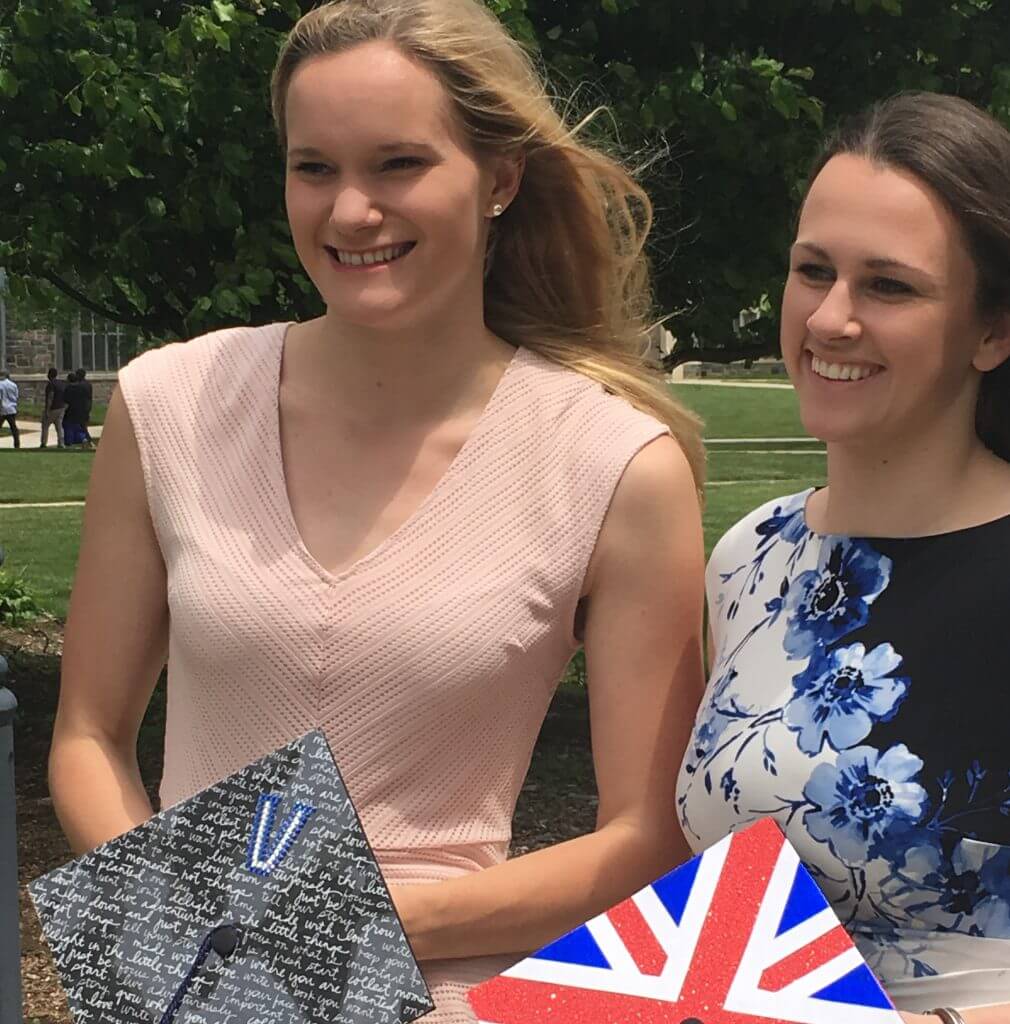NCAA Swimming: An Extraordinary Experience for Foreigners

By Caitlin Daday, Swimming World College Intern
While the overwhelming majority of college students in the U.S. are American, an increasing number of students from all around the world are landing in the U.S. The opportunity to study here is particularly attractive to athletes whose home countries do not have a collegiate athletics league like the NCAA.
Athletes of all sports have begun to migrate to the U.S. to continue their studies as well as their athletic careers. Swimmers make up a significant percentage of athletes following this trend. For swimmers and other athletes who make the decision to study and train in the U.S., the experience is incredibly worthwhile.
The Decision to Come to America

Photo Courtesy: Robert Stanton/USA Today Sports Images
While pursuing athletics at the collegiate level has become a relatively normal concept to most Americans, in other countries that is not the case. There is no form of collegiate athletics that allows their athletes to compete at the level of the NCAA while getting a quality education. Instead of having to choose between studies and athletics, many of their athletes have turned to the United States in order to pursue the best possible combination of furthering their studies as well as their swimming (or any other sport).
British swimmer and recent Villanova graduate Fiona Hardie describes the struggle she, as well as most international athletes, faced:
“Although in the UK there has been a recent development of a few universities hosting their own performance swimming programs, there is nothing like the NCAA. As I was entering university, in order to continue swimming, the trend was to either postpone university studies, study at university part-time, or try and find a balance that works between studying at university and training at a local club team. Having the chance to be a part of a streamlined system where all aspects of swimming and studies are brought together, as well as being part of a university team, provided the most ideal opportunity for me.”
Because there are not well-established systems that provide both higher-level academic and swimming opportunities, most international athletes need to come to the U.S. in order to attain both. In addition to the ability to combine athletics and academics, these students factor in the opportunity to experience a new culture and often even a new language. This experience alone is attractive to anyone and it makes American universities even more alluring.
The Challenges of Coming to the U.S.

Photo Courtesy: Villanova Athletics Media Relations
The prospect of an American education is exciting, but international athletes still face a lot of adjustment and change in coming to the U.S. Not only are they very far from home, but they are also immersed in a new and unfamiliar culture. From the language to food and everything in between, so much more about college is different for them than the average American student.
“You can’t go home for breaks, your parents are not at your meets, nor can you call them after your meets to let them know how you did due to time differences,” Finland native Kaisla Kollanus says. “Besides, explaining anything about your life is rather difficult when they don’t know the culture– it’s hard for them to understand how much college sports mean or what college life is like in general.”
On top of all the social changes, international athletes must also adjust to training and competing in yards. As Americans, it is easy to overlook this fact, seeing as all of us have competed in yards from a young age. To internationals, however, it is just one more change they have to face.
“Having only ever practiced and raced in meters, adjusting to yards was another challenge that I had to face,” Hardie said, “Having to rely on strong walls was never anything I had experienced growing up swimming in England—just watch the Americans’ walls at the Olympics compared to other nations to see the benefits that many Americans have from racing short course yards.”
Adjusting to the newness of college training is difficult for everyone in some ways, but training in a completely new kind of pool only adds to that difficulty.
Internationals also face the struggle of what to do after they graduate. While all college graduates have the difficult task of finding jobs, internationals have to jump through hoops to even be able to stay in the country, or often times still struggle to find something at home.
Tanawan Sukonthapanich, a Canadian student at LaSalle University, says, “Something I wish I had taken into consideration more so when deciding on coming to the United States was the struggle I would face in pursuing a postgraduate future in the country. Amongst trying to find employers willing to sponsor an international student, as well as filing for things such as an OPT or CPT if finding a job after college is a concern, what’s more so a concern for international students is how to even stay in the country.”
Even if they decide to return home, they now have an American degree rather than their native one and are then stuck dealing with complications because of that. These, among other hardships, make the American college experience rocky in a much different way for internationals.
What Foreigners Gain
While they certainly face challenges in coming to America, international students gain more than they ever would have at home. In addition to the value of education and athletics, international students garner a rich experience. Both in and out of the pool they grow into better swimmers and more cultured people.
“Coming to America exposed me to a very different life than I would have led had I stayed in Britain,” Hardie says of her time in America. “I became more adaptable, learned how to overcome unforeseen obstacles, and became a more independent individual. In the pool, coming to America let me enjoy what I had always seen as an individual sport as a team sport and one where I could rely on my teammates and they could rely on me.”
For Kollanus, too, the swimming improvement was great, but the benefits beyond the pool were extraordinary. “The greater benefits have been out of the pool: I’ve become a different person— in a good way, I’d like to believe. I learned a language, experienced a different culture, and made many friends, among everything else.” In coming to America, internationals hope to find a quality education and opportunity to continue their sport, but they leave with so much more.
Despite the challenges, international students coming to America to train and learn are extremely grateful for their opportunities and experiences. As Sukonthapanich puts it, “To say the least, my time here has been very rewarding. I have made friends from all over the world from Norway to Serbia, to Poland, China and Vietnam, and from all over the country. I could potentially travel the world and have a tour guide in every country. I have grown so much as a person, and have truly embraced the college experience of ‘work hard, play harder.’ My time here has been unforgettable.”





I imagine I’m not the first to ask this, but is there any reason SW does not annotate its photos (so we could, tell, for example, who any of the people shown above are)?